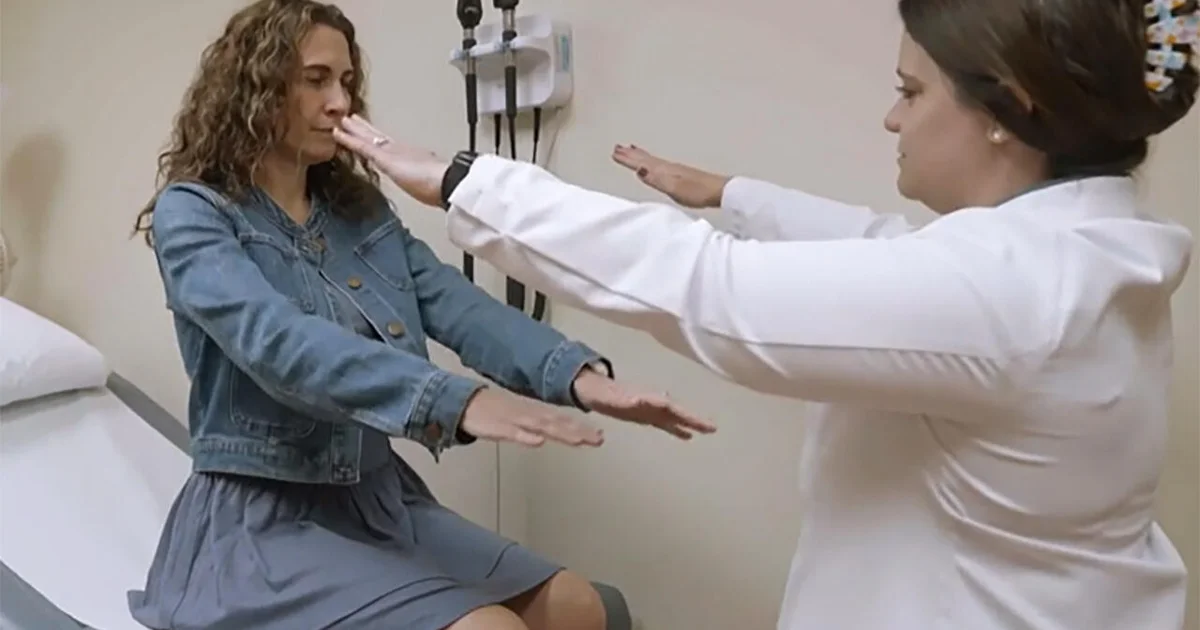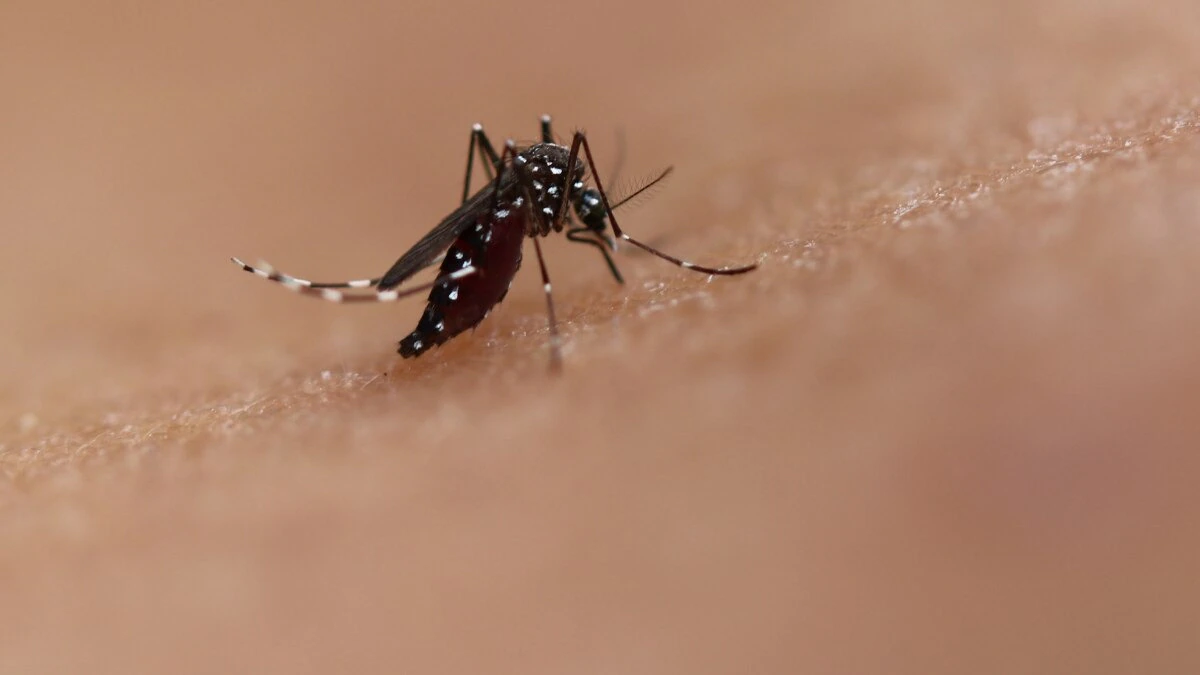Copyright CBS News

"I just know that my brain's not right," said Carrie Richardson, 44. "And so, I hate it. I just want it to be normal." At 41, Carrie developed early-onset Alzheimer's disease. The condition is caused by rare genetic mutations that essentially guarantee a person will develop the disease. Her mother, Mary Salter, of Montgomery, Alabama, knows the toll of the disease all too well. "I've lost seven family members from the ages of 37 to 44," she said … including her son, Bryan, who died last year. Mary, Carrie, and Carrie's daughter Hannah have been coming to the Washington University School of Medicine in St. Louis to participate in some of the world's first clinical trials in Alzheimer's prevention. "It's the least I can do to help," said Hannah. "I feel like I couldn't live with myself if I didn't do it." Dr. Randy Bateman, who leads international clinical trials at WashU Medicine, said, "Now we have a chance to change the course of the disease in a way we've never been able to do before." One reason for Bateman's optimism: For the first time, there's finally success treating mild Alzheimer's with medication that removes amyloid plaques – the protein deposits that build up on the outside of nerve cells in the brain, interfering with memory and thinking. These drugs have been shown to slow cognitive decline. "People who had the plaques removed are 30 percent better than the people who didn't have the plaques removed," Bateman said. "It doesn't stop the dementia. Dementia still continues, but at a slower rate." The point of the trials, Bateman said, is to study what happens when treatment is started even before Alzheimer's symptoms are evident: "If you look at the people who are treated in these trials, the people who are at the earlier stages, the earlier stage you go, the better off they do. Some of them actually have been stable. And so, what this suggests is that timing is critically important." Within a particular family with early-onset Alzheimer's, symptoms usually start at about the same age, so researchers can figure out when to start treatment to try to prevent the disease. "In these people, we have near-100-percent certainty they will get Alzheimer's disease dementia," Bateman said. "And we know about when they're going to get it." Though these rare mutations account for less than one percent of Alzheimer's patients, the lessons learned about when to start treatment may apply to everyone. "A death sentence" Jake Heinrichs is a Broadway theater electrician from Brooklyn who carries one of the early-onset genes. The disease claimed his grandmother, uncle, father and brother, all within the same age range. "Symptoms in the 40s and, and dying in 50s," he said. For Heinrichs growing up, the word Alzheimer's was "a death sentence." He started getting treatment in Bateman's study in 2013. Though he's definitely getting an antibody called lecanemab now, for the first seven years, he did not know if he was receiving an antibody or placebo. "I was at an age where I should have been showing signs," Heinrichs said, "and I am now at an age that I should probably not even be alive." His wife is Broadway director Rachel Chavkin. She says over the past three years, he will occasionally repeat a question, but otherwise has shown no cognitive decline since she fell in love with him twenty years ago. "Jake is now 51, which is the age that his father was when he died," she said. The Trump administration's budget cuts have stopped or delayed millions of dollars in Alzheimer's research. The situation has already had an impact on Bateman's trials. "It's a precarious time," he said. "Research is not like building a building or painting a wall where you can start and then stop for a few years and then go back and resume what you were doing. It's much more like feeding a baby … if you stop doing that for a few weeks, it's irrecoverable." "Let's double-down on this disease" With federal research money threatened, philanthropist Bill Gates says the effect of decreasing investment delays any breakthrough. "The data these young researchers have to consider different ideas is so much better than even five years ago," he said. "So, this is the time where you think, wow, let's double-down on this disease." That's exactly what Gates is doing. The billionaire Microsoft co-founder is using his wealth and influence to bring together industry and government to tackle Alzheimer's. He's already personally invested more than $300 million. "I'm going to stay very involved in this," he said. At a time of such possibility, uncertainty about funding is threatening momentum. "It's quite up in the air," Gates said. "If you talk to researchers, they're dealing with the uncertainty of, should they hire young people, or buy new equipment? And so, hopefully in the next several months, this gets resolved and, you know, that we can go full speed ahead." Gates has spent a considerable amount of his fortune to improve public health. And for him, it so happens Alzheimer's is personal. Bill Gates Sr., an attorney and philanthropist who died five years ago at the age of 94, also had Alzheimer's. "He was lucky enough to have 24-hour care," said Gates. "But there was no medicine, no, nothing that could bring his cognition back." Gates is supporting research to improve early diagnosis, treatment, and patient enrollment in trials. And – surprise – he sees a huge role for artificial intelligence. "AI is going to impact everything we do," he said. "The biology of the brain is so complex that AI's ability to take large amounts of data and find meaning in that data means that this research is going to go a lot faster." The early-onset clinical trials are expected to continue for at least another five years involving hundreds of people at 40 sites around the world. If successful, it could usher in routine screening for Alzheimer's with a simple blood test, just as we do now for high cholesterol and diabetes. Could people be tested now? Bateman said, "Right now in medicine, we don't test people without symptoms, because the treatments aren't yet proven to work in people without symptoms." Finding effective treatments is a hot area of research, and may include giving cocktails of medications that target not only amyloid but other possible culprits, such as brain inflammation and a damaging nerve cell protein called tau. Bateman said, "If this trial holds up and we can continue to demonstrate benefit year-after-year that these people are protected, then I actually think that will predict what's gonna happen in the near future in ongoing prevention trials: That they will be positive, they will work, they will give people years of dementia-free life." So, Jake Heinrichs undergoes regular MRIs, physicals, memory testing, spinal taps, and PET scans to monitor his brain function, and see if he can prevent an almost-certain genetic destiny. Four-year-old Sam Heinrichs is living proof of what can come from a belief in science – and a leap of faith. I asked Jake, "What made you finally say, you know what, even though there's a 50-percent chance he might get the gene, we're going to go ahead and try to have a baby?" "Because I've been part of this study, and it seems to be effective," Jake replied. "It gave me hope that the scourge of Alzheimer's is something that we're not going to fear in the future. Anything could happen. But right now, I have hope." READ AN EXCERPT: "The Day After Yesterday: Resilience in the Face of Dementia" Photographer Joe Wallace has chronicled the stories of families who have lived with Alzheimer's. WEB EXCLUSIVE: Watch an extended interview with Bill Gates about Alzheimer's research (Video) For more info: Alzheimer's: WashU Medicine Cure Alzheimer's (Gates Notes) Alzheimer's Association "The Day After Yesterday: Resilience in the Face of Dementia" by Joe Wallace (MIT Press), in Hardcover and eBook formats, available via Amazon, Barnes & Noble and Bookshop.org Story produced by Jay Kernis. Editor: Jason Schmidt. See also:



